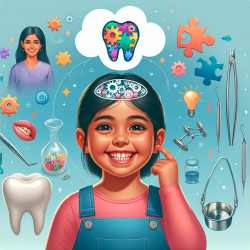Introduction
As practitioners in the field of speech-language pathology, our primary goal is to create optimal outcomes for the children we serve. While our focus is often on language development and communication skills, it is equally important to consider environmental factors that may impact a child's overall health and well-being. One such factor is exposure to secondhand smoke (SHS), which has been shown to have significant adverse health effects. A recent study titled Restaurant and Bar Owners’ Exposure to Secondhand Smoke and Attitudes Regarding Smoking Bans in Five Chinese Cities provides valuable insights that can be leveraged to improve our practice and outcomes.
Key Findings from the Study
The study conducted by Liu et al. (2011) involved interviews with owners of 814 restaurants and bars across five Chinese cities. The research revealed that:
- 86% of non-smoking subjects had at least one-day exposure to SHS at work in the past week.
- Only 51% of subjects knew that SHS could cause heart disease.
- Support for prohibiting smoking completely in restaurants and bars was low (17% and 11%, respectively).
- 53% of subjects were willing to prohibit or restrict smoking in their own venues.
- 82% of those unwilling to do so believed smoking bans would reduce revenue.
Implications for Speech-Language Pathologists
While the study focuses on restaurant and bar owners, the findings have broader implications for public health and can inform our practice in speech-language pathology. Here are some actionable steps based on the study's outcomes:
1. Educate Families About SHS
Given that many individuals are unaware of the specific health risks associated with SHS, it is crucial to educate families about these dangers. Incorporate information about SHS into your sessions, emphasizing its impact on respiratory health, which can indirectly affect speech and language development.
2. Advocate for Smoke-Free Environments
Advocate for smoke-free environments in homes and schools. Highlight the study's finding that ventilation alone cannot eliminate SHS hazards. Use data to support your advocacy, showing that smoke-free policies do not necessarily lead to reduced revenue or other negative outcomes.
3. Collaborate with Public Health Initiatives
Partner with local public health organizations to promote smoke-free policies. By aligning with broader health initiatives, you can amplify your impact and contribute to creating healthier environments for children.
4. Conduct Further Research
Encourage further research on the impact of SHS on children's health, particularly in relation to speech and language development. Data-driven decisions are crucial, and more research can provide the evidence needed to advocate for policy changes and improved practices.
Conclusion
The study by Liu et al. underscores the importance of addressing SHS exposure in various environments. As speech-language pathologists, we have a role to play in educating families, advocating for smoke-free environments, and contributing to public health initiatives. By leveraging the findings from this research, we can enhance our practice and create better outcomes for the children we serve.
To read the original research paper, please follow this link: Restaurant and Bar Owners’ Exposure to Secondhand Smoke and Attitudes Regarding Smoking Bans in Five Chinese Cities.










